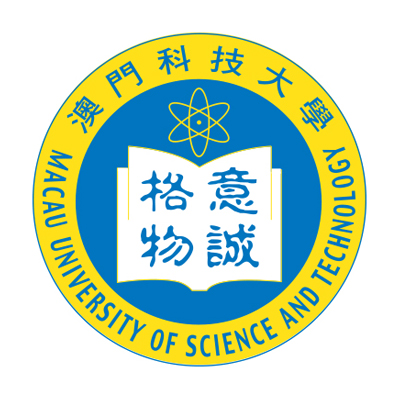Prioritising innovation and tradition in academic research

Sponsored by

Sponsored by

Macau University of Science and Technology promotes the study of Chinese medicine to support healthcare in Macao and beyond
Macau University of Science and Technology embraces cutting-edge research while remaining true to the local culture and traditions. This is particularly evident in the university’s academic and research initiatives in the field of Chinese medicine.
“Macau University of Science and Technology has always upheld the spirit of sincerity and integrity, identifying traditional Chinese medicine as a key area of development,” says Zhi-Hong Jiang, the university’s vice-president and director of the State Key Laboratory of Quality Research in Chinese Medicine.
The Faculty of Chinese Medicine was established in 2000, the same year the university was founded. It offers comprehensive and advanced programmes in Chinese medicine, including bachelor’s, master’s and PhD programmes in Chinese medicine and postgraduate degree and research programmes in integrated Chinese and Western medicine.
Instead of limiting learning experiences to textbooks, the university combines innovation and traditional thinking in its research and teaching methods. It emphasises practical training to cultivate student interest in various fields of Chinese medicine and lay the foundations for a future career in scientific research. “By combining academia, industry and research, the university aims to make its research results widely known to the public,” says Jiang.
“Our faculty covers numerous fields, ranging from traditional Chinese medicine to interdisciplinary medical research,” he adds. In the future, the university hopes to obtain even more national and local funding for projects to deepen its scientific research achievements and cement Macao as a renowned city for Chinese medicine research in the Greater Bay Area.
The State Key Laboratory of Quality Research in Chinese Medicine at the university plays a prominent role in advancing Chinese medicine globally. Established in 2011, it is the first national key laboratory in the field of traditional Chinese medicine in China. The laboratory has become an international research base for innovative drug research in Chinese medicine, cultivating outstanding talent in the field. It also functions as an international hub for promoting academic exchanges and cooperation.

Zhi-Hong Jiang, vice-president of Macau University of Science and Technology
“The laboratory focuses on integrating cutting-edge technologies from multiple disciplines, to establish an open scientific and technological platform for research in Chinese medicine and innovative drugs,” Jiang adds. “The laboratory’s future development will continue to focus on new methods and technologies for quality research in Chinese medicine and enhancing research to meet the needs of the local scientific and technological industries in the Greater Bay Area.”
Within the field of Chinese medicine, Macau University of Science and Technology offers several different academic and research programmes, focusing on enhancing students’ knowledge structures and cultivating their practical skills. “In addition to general compulsory courses, the university offers courses in pharmacy in Chinese medicine, integrated traditional Chinese and Western clinical medicine, and management of production and sales of traditional Chinese medicine,” Jiang notes. “The curriculum and teaching processes aim to nurture students’ innovative spirit and abilities and their potential for career development, both domestically and internationally.”
To promote this diversified career development, the university balances traditional knowledge with modern scientific approaches in the teaching and practice of Chinese medicine. This involves the combined application of Chinese and Western medicine as part of a “general education-professional-innovation” integrated model for cultivating talent.
“The rapid development of the university hospital under the Macau University of Science and Technology Foundation provides further opportunities for clinical internships,” Jiang notes. “In our scientific research, we adhere to both inheritance and innovation,” he explains. “For instance, we fully utilise the excellent professionals and facilities of affiliated hospitals from Guangzhou University of Chinese Medicine and Nanjing University of Chinese Medicine, implementing joint training with complementary advantages to provide clinical internship opportunities.”
Collaboration is essential to the opportunities Macau University of Science and Technology provides its students. The university has established long-term cooperative relationships with several renowned higher education institutions and hospitals to provide clinical internships and research opportunities for students. “Students frequently participate in both internal and external study activities and are encouraged to engage in overseas exchange programmes,” says Jiang.
The university has established cooperative relationships with renowned educational and research institutions in the US, Portugal, Hong Kong, mainland China and other countries. These partnerships provide students with more opportunities to broaden their employment prospects after graduation.
To support the growth of Chinese medicine in the future, the university established its Medical Science Division in 2022 to concentrate more resources on the development of traditional Chinese medicine research. “With the support of the Science and Technology Development Fund, the laboratory research team has made significant progress in the study of ribonucleic acid modifications,” Jiang explains. “With the support of the government of the Macao Special Administrative Region [SAR] and the continuous efforts of our laboratory colleagues, the university’s developments in traditional Chinese medicine will continue to play an indispensable role in the healthcare system of Macau.”
The university aims to leverage the various advantages stemming from its location in Macao. These include the institutional advantage of the “one country, two systems” policy and the policy advantage of the central and SAR governments in promoting diversified economic development and talent base in the region.
“The Macau University of Science and Technology will continue to actively develop Macao’s healthcare industry while fulfilling its social responsibilities and contributing to the development of traditional Chinese medicine in the Greater Bay Area, the wider country and beyond,” Jiang concludes.
Find out more about Macau University of Science and Technology.